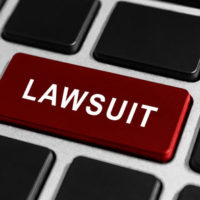Premises Liability In Private Homes

The legal theory of premises liability is most commonly seen for most people in reading about slip and fall accidents in the supermarket. However, premises liability lawsuits can be initiated over any accident which happens on someone else’s land. If you have been injured in someone’s home or on someone’s private property, you may be able to seek compensation for your harm. However, success will depend largely on the status you had on that property. Seeking out legal assistance is a good idea before going forward.
Premises Liability 101
In Florida, the owner of property (or of a business on property) has a duty to make their particular area safe for those who might come in. However, the specific duty owed depends on the reason the person had to come onto the property. Florida follows the common law, which means that three different types of visitors are recognized under state law, and each one is treated differently if they are injured while on the property. They are:
- Invitees, who can be further divided into business invitees and public invitees. Business invitees are welcomed onto the land because they have some type of business with the owner or occupier, such as customers in a store. Public invitees are welcomed as members of the public, for some purpose where the land is open to members of the public (for example, guests on a tour of a landmark). In private homes, almost all invitees will be of the business sort.
- Licensees, who are those allowed on the land for business of their own. Most social guests are considered licensees, for they are in the home or on the land for their own reasons – to visit with the residents.
- Trespassers, who are those who have no right to be present on the property at all. This particular classification only applies to adults, however – if children trespass into someone’s home or onto someone’s land, there are certain laws that apply to them which change the duty of care.
Has The Duty Of Care Been Breached?
Once you know which classification you fall into, it can be determined if the owner or possessor of the property breached the duty of care they owe to their visitors, and if so, whether or not they might be on the proverbial hook for compensation. The only duty that a homeowner owes to trespassers is to refrain from maliciously or recklessly injuring them, and to try and warn of dangers that are not open and obvious – if, for example, a burglar trips on a loose board on the stairs and breaks their leg while trying to rob the home, the homeowner is not liable for that injury.
Conversely, a homeowner must warn licensees and invitees of any potential dangers that are not immediately obvious, and for an invitee, they must take steps to remedy any potential danger that they are aware of, or that they could be expected to know of. Most guests in private homes are licensees, and if the homeowner warns them of any potential dangers, most instances of liability can be averted. However, there are always exceptions, and it is always good to verify your status with experienced legal help.
Can A Premises Liability Attorney Help You?
Premises liability cases can seem very complex and confusing, with the different classifications, but what they boil down to is always the same – did the homeowner or business owner exercise the right amount of care to help you avoid harm? If you believe the answer is no, consulting a dedicated Tampa premises liability attorney is a good next step, and the Rinaldo Law Group is well versed in handling these types of cases. Contact our office today at 813-831-9999 for a free consultation.
Resource:
leg.state.fl.us/Statutes/index.cfm?App_mode=Display_Statute&Search_String=&URL=0700-0799/0768/Sections/0768.075.html
https://www.tampainjuryaccidentlaw.com/what-is-premises-liability/












